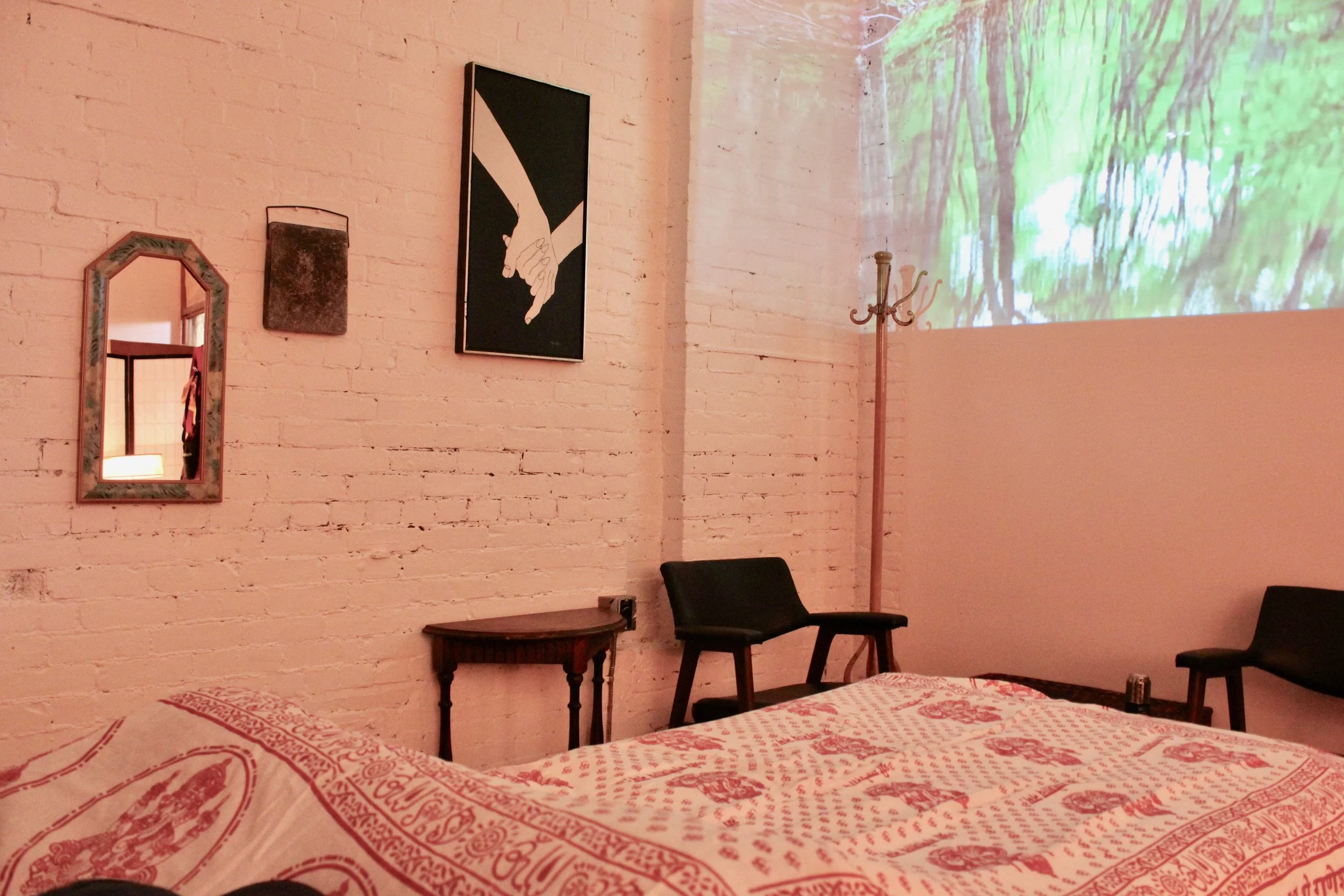What Makes Frequency Different
Unlike traditional spas, salons, massage studios, or chiropractic or home offices my spaces have always been private studios. This means I only see one person at a time for 60 or 90 minutes (I call these sessions Shortwave and Longwave Sessions respectively). I don’t have confusing spa menus with 10 different massages to choose from. Who can tell the difference anyways?
Some might say I offer massage therapy that helps to slow down in today’s extremely fast-paced world by offering a relaxing space to reconnect mind, body, and spirit. If you’re simply looking to release knots—I can help you find ways to do that at home.
Since developing a step-by-step process to get started with new clients, I no longer take same day appointments. I know how it feels to want to have a massage in the spur of the moment and would be happy to direct you to others that can help.
I’ve learned from my clients and personal experience that massage therapy works best when it’s consistent. That’s why I am now promoting the SoundBody Subscription—a simple way to make bodywork part of your life, not just a once-in-a-while splurge.
Frequently Asked Massage Therapy Questions
Q: How long should a massage session be?
A: Spas and other massage clinics typically offer massage treatments that range anywhere from 30 to 120 minutes. At Frequency, massage sessions range between 45 or 90 minutes depending on your needs and goals.Q: Do I need to undress completely for a massage?
A: A common suggestion is to “undress to your comfort level”. The truth is, your therapist has been trained to perform certain techniques on completely naked bodies. I recommend taking off everything or as much clothing as possible. If you do wish to remain fully clothed (this is also acceptable) consider wearing loose-fitting, comfortable clothing during your session.Q: Is deep tissue massage painful?
A: Deep tissue massage can be intense. The word ‘deep’ in a massage context refers to the depth of the muscle tissue in relation to the the superficial layer of our skin. A common misconception is that deep tissue massage needs to hurt but actually, it shouldn't be painful and can be performed gently. Sustained pressure is adjusted to your comfort level.Q: How often should I get a massage?
A: This is the most commonly asked question by anyone starting massage therapy for the first time. My current answer is: as consistently as possible. For some of my clients this means twice a month, others come twice a year. I now offer a SoundBody Massage Subscription to help make massage therapy as affordable as possible and a regular part of your life.Q: Can massage therapy help with chronic pain?
A: Yes, regular massage can reduce pain, improve mobility, and address muscle imbalances that contribute to chronic discomfort.Q: How can I make the most of my massage session?
A: It’s common for someone to start massage therapy with a very particular issue or problem (like stiff neck from sleeping wrong) then find that there are more pleasurable effects that can be experienced on the table. Have honest conversations with your therapist about your current physical, mental, and emotional states of being. This can have a significant impact on the way a trained therapist or bodywork tailors your session.
Health & Wellness FAQs
Q: Can massage therapy help with stress and anxiety?
A: Absolutely, massage has been shown to reduce stress hormones and promote relaxation, helping with anxiety relief. The effects can be longer-lasting when massage therapy is received consistently.Q: Does massage therapy really work for low back pain?
A: Yes, studies show that massage can be effective for reducing low back pain and improving mobility.Q: Will insurance cover my massage therapy sessions?
A: Some insurance plans cover massage therapy sessions however not all massage therapists deal with insurance billing. Currently, Frequency if prescribed by a doctor.Q: How should I prepare for a massage?
A: Wear comfortable clothing if you wish to remain clothed or prepare to removing all clothing, jewelry, etc. Avoid heavy meals, alcohol, caffeine and other stimulants right before your session. Disconnect from digital devices.Q: What should I do after a massage session?
A: Continue to stay hydrated and eat only nutritious meals throughout the day. I recommend avoiding alcohol due to its dehydrating effect. Consume caffeine only if needed. Light movement is fine but avoid strenuous activity on the body.

